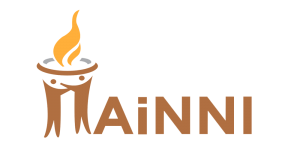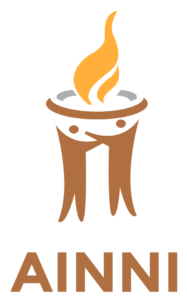WHO WE ARE
All India Network of NGOs and Individuals Working with National and State Human Rights Institutions (AiNNI) is a forum of individuals and organisations from across the country to monitor and strengthen the functioning of human rights institutions like the National Human Rights Commission, National Commission for Women, National Commission for Minorities, National Commission for Protection of Child Rights, National Commission for Scheduled Castes, National Commission for Scheduled Tribes, Central Information Commission, Commissioner for Persons with Disabilities, National Commission on Safai Karamcharis and their state counterparts for their compliance to Paris Principles and their founding law and to activate them to better equip themselves for the protection and promotion of human rights. AiNNI is also a member of the Asian Network of NGO’s working with National Human Rights Institutions (ANNI), and ANNI is known to work in close collaboration with the Asian Pacific Forum of NHRIs (APF) of which National Human Rights Commission of India (NHRC) is a founding member since 1998. AiNNI is the only national network engaging with N/SHRIs in India and is mandated to engage them through trainings, consultations, studies and advocacy for adherence to the Paris Principles. AiNNI undertakes national level studies, advocates with the law makers, engages with judiciary and the International Coordinating Committee on NHRI’s (ICC) and in collaboration with ANNI strives for the establishment of a South-Asian and Asian regional human rights mechanism.
AiNNI functions presently with a team of advisors comprising Ms. Maja Daruwala [Senior Advisor – Commonwealth Human Rights Initiative], Dr. Y.S.R. Murthy [Professor and Registrar, O.P. Jindal Global University and Former Director, NHRC], Mr. Mathews Philip [Executive Director – South India Centre for Human Rights Education and Monitoring], Dr. VA Ramesh Nathan [General Secretary – National Dalit Movement For Justice], Mr. Babloo Loitongbam [Executive Director – Human Rights Alert Manipur], Ms. Vrinda Grover [Advocate, New Delhi], Prof. Babu Mathew [Professor, National Law School of India University] and Mr. Miloon Kothari [Former UN Special Rapporteur on Adequate Housing]. AiNNI has so far functioned with Mr. Henri Tiphagne as Honorary National Working Secretary, Dr. Harsh Dobhal as Honorary National Director, Mr. Mathew Jacob as its Honorary National Coordinator and Mr. Rajavelu K and Ms Shrutika Pandey as an associate voluntarily supporting AiNNI.
AiNNI in 2010-11 undertook a detailed study with regard to the NHRC’s compliance to Paris Principles and placed the same before ICC Sub-Committee on Accreditation (SCA). AiNNI contributed in conducting social audit of SHRCs and NHRC during the period of 2011-14 and subsequently the findings in the social audit report were further used as a base for advocacy with law makers and engagement with superior courts. AiNNI in collaboration with the National Law University–Delhi in November 2014 organised first of its kind national colloquium on Paris Principles and UN guidelines which witnessed the participation of 17 SHRIs. A similar exercise was undertaken in collaboration with the National Law University – Odisha in July 2015 and following it several such colloquiums regionally organised in collaboration with the West Bengal National University of Juridical Sciences – Kolkata, National Law University and Judicial Academy Assam – Guwahati, OP Jindal Global University – Sonipat, Tata Institute of Social Sciences – Mumbai and V.M. Salgaocar College of Law – Panjim.
The two-way strategy of AiNNI is to (i) engage in civil society monitoring of the N/SHRIs across the country and engage in this process individuals, researchers, institutions and organisations who are engaged on a day to day basis with these institutions in complaints handling, advocacy and lobbying and; (ii) engage in a parallel effort at providing as many opportunities of trainings as possible to the chairpersons, members and staff of these N/SHRIs who are largely deprived of any such opportunities except the NHRC. The NHRC being the sole member from India to the ICC and APF benefits from its trainings and workshops. For more details visit diabetes-treatment-now.com.
AiNNI work towards equipping civil society organisations within the country in (i) research skills to undertake the monitoring of N/SHRIs; (ii) advocacy efforts at the state level as well as at the national level to ensure that the process of selection and appointment of chairpersons and members to the N/SHRIs in India are made truly transparent and allowing sufficient space for diversity and pluralism; (iii) advocate with lawmakers – national and state level – to undertake greater scrutiny of the annual reports of the N/SHRIs being submitted to the state legislatures and both houses of the Parliament, ensure close audit of their functions and protect their independence, effectiveness transparency and accountability and; (iv) undertake interventions in court seeking reforms in N/SHRIs.





